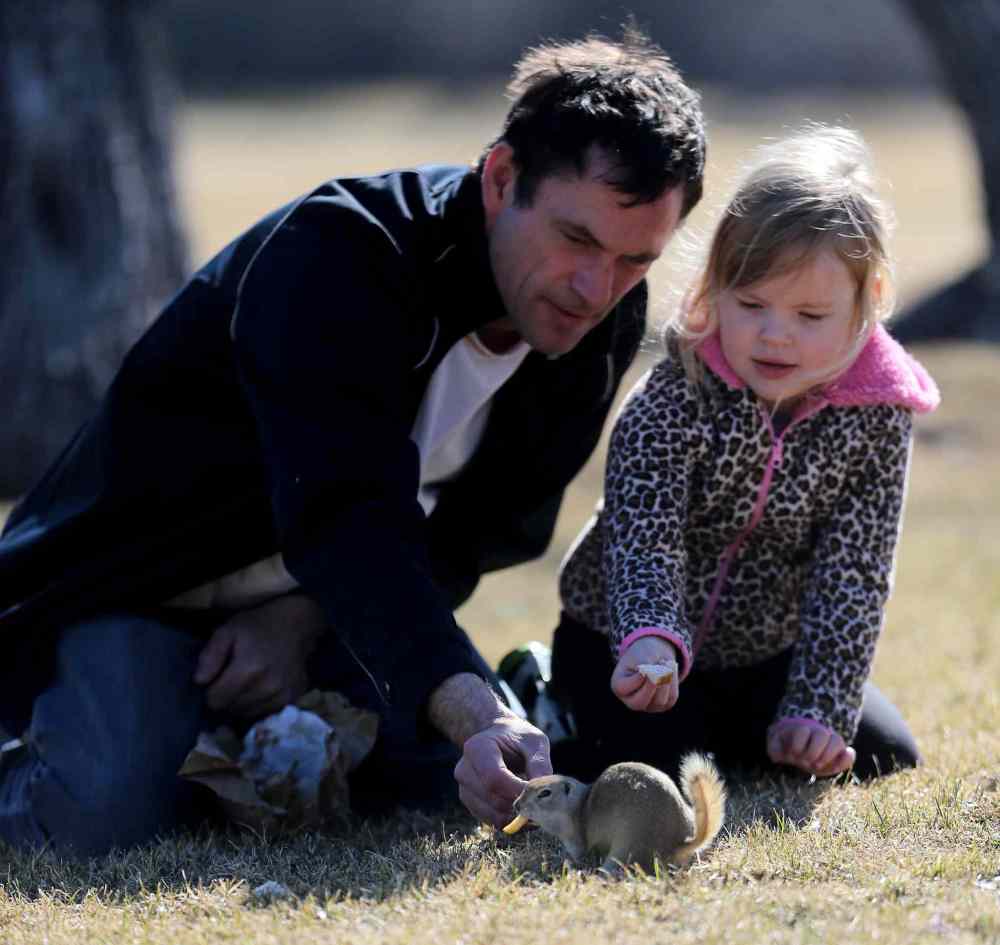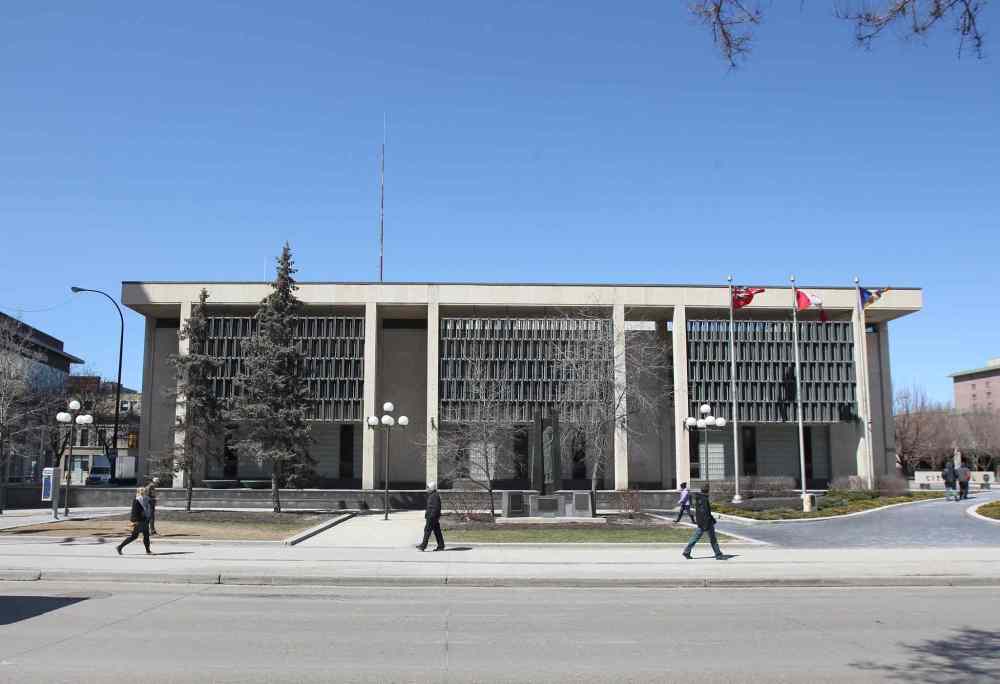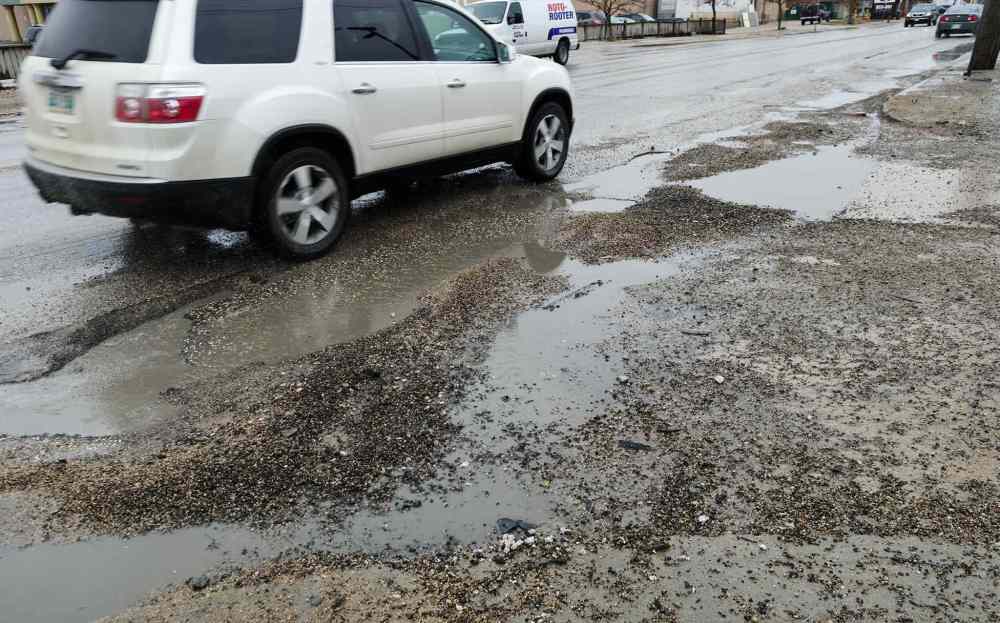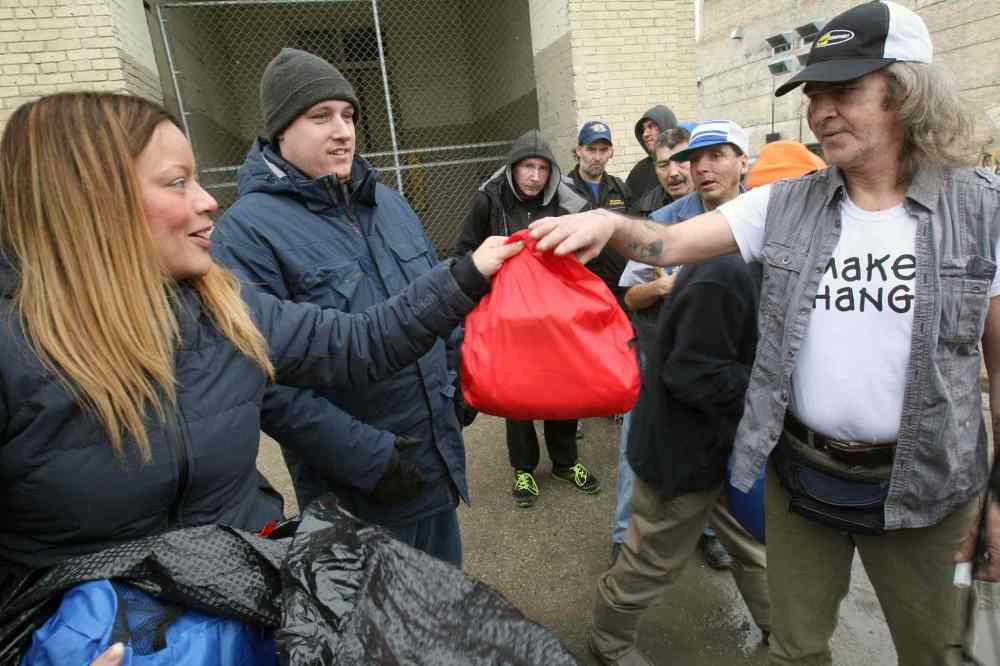Manitoba spends! Budget by subject
Advertisement
Read this article for free:
or
Already have an account? Log in here »
To continue reading, please subscribe:
Monthly Digital Subscription
$1 per week for 24 weeks*
- Enjoy unlimited reading on winnipegfreepress.com
- Read the E-Edition, our digital replica newspaper
- Access News Break, our award-winning app
- Play interactive puzzles
*Billed as $4.00 plus GST every four weeks. After 24 weeks, price increases to the regular rate of $19.95 plus GST every four weeks. Offer available to new and qualified returning subscribers only. Cancel any time.
Monthly Digital Subscription
$4.99/week*
- Enjoy unlimited reading on winnipegfreepress.com
- Read the E-Edition, our digital replica newspaper
- Access News Break, our award-winning app
- Play interactive puzzles
*Billed as $19.95 plus GST every four weeks. Cancel any time.
To continue reading, please subscribe:
Add Free Press access to your Brandon Sun subscription for only an additional
$1 for the first 4 weeks*
*Your next subscription payment will increase by $1.00 and you will be charged $16.99 plus GST for four weeks. After four weeks, your payment will increase to $23.99 plus GST every four weeks.
Read unlimited articles for free today:
or
Already have an account? Log in here »
Hey there, time traveller!
This article was published 30/04/2015 (3919 days ago), so information in it may no longer be current.
What the provincial budget means for the families, City of Winnipeg, Manitoba’s infrastructure and other areas:
Familiesl

The plan: Families dominated federal budget spin last month, but the province’s blueprint didn’t. The key pledge was for 900 new child-care spaces. That’s this year’s chunk of a five-year promise to fund 5,000 more daycare spaces.
The numbers: Those spaces will cost about $8 million more in operating grants and subsidies for poorer parents. The capital costs are murkier.
Nuts and bolts: The province’s child-care regime is generally seen as second only to Quebec, and the 900 new spaces were expected. Normally, the NDP also offers a small income tax break for families by boosting the basic personal amount by a smidge. This is the first year in the last four that hasn’t happened.
The challenges: Staff and capacity. Finding enough trained and qualified early childhood educators is a problem now, let alone if dozens of new daycares open. And, as the Manitoba Child Care Association’s Pat Wege said, 900 new spaces are excellent, but only a tip-toe towards a fully universal system. There are about 11,000 kids still on Manitoba’s central waiting list.
City of Winnipeg

The plan: Devote $5 million from the Building Manitoba Fund, a provincial infrastructure kitty, to a new fund that Winnipeg Mayor Brian Bowman calls the Build Winnipeg Partnership. The province insists this is new money, on top of what was transferred to the city in in 2014. The Selinger government also pledged to continue to cost-share city road renewal projects and reaffirmed plans to help the city pay for a new Marion Street interchange and Waverley underpass.
The numbers: Total provincial spending on Manitoba’s capital is up $8.8 million to $322.8 million this year. Infrastructure accounts for the biggest chunk of that increase, which is up $7.3 million to $211.8 million this year.
Nuts and bolts: Bowman gets to claim a victory for fulfilling his Building Winnipeg Fund election promise, but the mayor did not get a chunk of growth revenue. To be fair, neither did Sam Katz or Glen Murray, who also sought a percentage of the provincial sales tax.
“We’ve seen, year after year, the same discussion that has the City of Winnipeg coming cap in hand, crying poor. That’s not getting us anywhere,” Bowman said after learning details of the budget.
“Simply, we need new money. The model is broken. It is fundamentally broken in terms of how we fund our cities and how Winnipeg is funded.”
The challenges: The province, like Ottawa, still isn’t kicking in its fair share of the cost of City of Winnipeg wastewater upgrades – the single largest expense for Manitoba’s capital. As a result, city water-and-sewer bills will continue to rise to absorb the cost.
Businesses

The plan: The province will raise the corporation capital tax on financial institutions – that is, banks, trust corporations and loan corporations — from five per cent to six per cent. “We decided the big banks, large banks could afford to make a contribution to tax relief in other areas,” Finance Minister Greg Dewar said.
The Selinger government will also bump up the income limit for small businesses eligible for the small-business deduction by $25,000. Make modest tweaks to existing tax credits for the likes of data-processing investments and co-op education.
The numbers: The province expects to raise $25.5 million this fiscal year by bumping up the tax on financial institutions. The change in the small-business income limit will cost $800,000. The other changes are negligible.
Nuts and bolts: Generally, the Selinger government has kept its business-tax regime in place, except where the financial industry is concerned. Business owners will likely be far more concerned that no progress is being made about reining in public spending. The deficit is now projected to be $422 million this year – up from $357 million a year ago.
The challenges: The rising deficit, though modest in comparison to the massive pool of red ink spilling out of oil-dependent Alberta, remains concerning for a province that prides itself on possessing the healthiest economy in Canada. Business leaders will want to see a more robust effort to hold the line on costs.
The hike in the corporation capital tax also sends the wrong message, said Chuck Davidson, president and CEO of the Manitoba Chambers of Commerce.
“Do other jurisdictions have this tax on banks? They don’t. So Manitoba’s become an island,” he said, expressing fear some banks won’t set up shop here. “When you take measures that make us uncompetitive, business takes action. Business has the ability to move.”
Infrastructure

The plan: Increase spending on infrastructure maintenance and construction, most of it devoted to highways.
The numbers: Total spending on infrastructure planning, design and maintenance will rise $47 million to $607 million. Total spending on new construction is going up $44 million to $647 million.
Nuts and bolts: The vast majority of the spending on new infrastructure – $589 million – involves highways. But almost all this cash will be spent on previously announced projects, such as improving the Trans-Canada Highway west of Winnipeg, building a new interchange at the the northeast Perimeter Highway at Highway 59, building up Highway 75 to mitigate against Red River flooding, build a new water-treatment plant to service the Headingley area and extend the all-season road on the east side of Lake Winnipeg.
The challenges: The future of the east-side Lake Winnipeg road appears iffy, given Ottawa’s lack of interest in funding the project. And despite the significant increase in infrastructure spending, interest charges eat up much of the tab – at least $191 million on the operating side alone.
There is also a lingering concern the infrastructure spending announced on budget day will not match actual spending this year. CAA Manitoba president and CEO Mike Mager said he would like to see a more transparent accounting of which specific highway projects are financed and completed.
“A billion dollars is a nice sexy news story line, but what does that mean to the average individual?” he asked.
Nonetheless, he praised the province for ensuring new projects are in fact getting done.
Seniors

The plan: In March, seniors were promised another break on their property taxes and the budget made good on that. The seniors’ school tax rebate will double, from $235 to $470, this tax year.
The numbers: The move will cost the province about $11 million in lost revenue this year. The real cost is coming in 2016, though, when seniors can get as much as $2,300 back on their school property taxes. That will cost the province nearly $50 million.
Nuts and bolts: By 2016, the NDP says only about 2,000 seniors will be paying any school taxes. That’s a very nice goodie to promise to a huge cohort of reliable voters just before a provincial election.
The challenges: Some homeowners and most in the real estate industry, really hate paying for education on their property taxes. The seniors’ rebate is one way the Selinger government has mollified those groups, but just barely. Even some longtime opponents of education property taxes, including Lorne Weiss of the Manitoba Real Estate Association, say it’s unfair to allow only one sector of society to duck taxes that fund a service that benefits everyone. And, the rebate isn’t based on income. Even wealthy seniors get it.
The poor

The plan: Poor people, including folks not on welfare, will get more help with rent. The amount earmarked by welfare for rent will increase markedly to 75 per cent of market rates this year. That’s two years faster than the province promised. The move is part of a program called Rent Assist that started last year and even helps the working poor not on welfare.
The numbers: It doesn’t cost much, an extra $22 million a year. By the end of this year, a single disabled person on welfarewill get $513 a month for rent. A single mom with two kids will get $742. And, a poor person who is working and not on welfare will also get the bump, to ensure people aren’t spending more than a quarter of their pay on rent. Last year, 17,000 people on welfare got Rent Assist, and another 3,500 working poor people got the subsidy as well.
Nuts and bolts: Poverty groups have been calling for the 75 per cent threshold for years, and former cabinet minister Theresa Oswald promised it when she challenged Selinger for the leadership. Even Tory Leader Brian Pallister has promised it. The move undermines one of Pallister’s key poverty promises going into the 2016 election.
The challenges: There is some worry the extra cash will prompt landlords to simply raise rents, though Manitoba’s rent control guidelines should help. Poverty advocates, including “the Bannock Lady” Althea Guiboche and Winnipeg Harvests David Northcott cheered the move. Northcott said he expects it will prompt a decrease in the number of people seeking food from Harvest.
Students

The plan: Student loans, old ones and new ones, will be interest-free for the first time this year. And, for the first time, students can own a car and not get dinged with a smaller student loan for it. The car rule will allow about 850 students to borrow more for school. University grants are stable, with a 2.5 per cent increase, which was expected. But capital funding is still a mystery.
The numbers: The interest-free loans promise doesn’t cost the government much in the short term. Long-term, for all loans issued this year, the cost will be $4.5 million. The boost to university and college operating funding will cost the province about $20 million.
Nuts and bolts: Students have always been a big element of NDP budgets, partly as a method to counter criticism that young people flee the province for better opportunities elsewhere. Students, whose tuition is among the lowest in Canada and capped at the rate of inflation, were pleased with the no-interest change.
The challenges: Planning. In the next months, the province will release a post-secondary education strategy, with $4.5 million, to better integrate programs at the province’s gaggle of colleges and university. University of Manitoba President David Barnard, who is among the presidents advising the province on the strategy, applauded the plan and said it’s expected it will look at ways to boost aboriginal enrollment, among other things.
The Environment
The plan: Create a new $1-million fund to combat climate change –and that’s about it.
The numbers: The province will slash operating spending by Manitoba Conservation and Water Stewardship by $2.7 million, taking it down to $138.1 million. Capital spending by the same ministry is down $7 million, despite a much-ballyhooed program of increased spending on amenities for parks.
Nuts and bolts: Manitoba Water Stewardship and Conservation was one of six provincial ministries to get cut. The science side – water stewardship and biodiversity – took an $800,000 hit alone.
The challenges: Based on its lacklustre commitment to environmental science, the Selinger government may no longer be able to claim to occupy higher ground than the federal Conservative government.
History
Updated on Thursday, April 30, 2015 3:12 PM CDT: Adds missing words.
Updated on Thursday, April 30, 2015 4:05 PM CDT: Added pictures.
Updated on Thursday, April 30, 2015 4:37 PM CDT: Updated throughout with more information.
Updated on Thursday, April 30, 2015 8:54 PM CDT: Fixes typo.
Updated on Friday, May 1, 2015 4:57 PM CDT: Corrects that Lorne Weiss is with the Manitoba Real Estate Association


